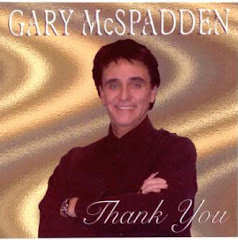Writers write. It's what we do. Jane at Writer's Digest talks about the balance between careful and careless in regards to online content.
Are You Needlessly Worrying About Your Work Getting TOO MUCH Exposure?
Posted by Jane at Writer's Digest
http://blog.writersdigest.com/norules/CategoryView,category,MarketingSelfPromotion.aspx
As writers become more and more comfortable with online media, I receive more and more questions like this:
• If I post my work on my own site, will anyone be willing to consider it for print publication?
• How much of my novel can I post online before a publisher won't take it any more?
• Do I lose rights to my work if it's posted on XYZ site?
Here are key points to remember.
1. First things first: You own the copyright and all rights to your work when you post it online, unless you specifically agree otherwise. It may be easier to steal when it's online, but you still own it.
2. Always check the terms of service when regularly posting content to any site. If you're posting your work on major sites like Authonomy, WeBook, etc., you really have nothing to worry about. In such cases, you're not relinquishing any exclusive or vital rights to your work by posting it. (If someone knows of exceptions, please note in the comments.)
However, there may be an implicit agreement—by very fact of you using a website—that the site owner has nonexclusive right to use the content in a limited (or expansive) way. Such use is usually justified or reasonable, and sometimes it might profit the site owner. You need to decide what you're comfortable with and if the trade-offs are worth it. I have yet to see an agreement that is unethical or not upfront.
For example, here is Amazon's language governing book review content, which you agree to when using their site:
If you do post content or submit material, and unless we indicate otherwise, you grant Amazon a nonexclusive, royalty-free, perpetual, irrevocable, and fully sublicensable right to use, reproduce, modify, adapt, publish, translate, create derivative works from, distribute, and display such content throughout the world in any media. You grant Amazon and sublicensees the right to use the name that you submit in connection with such content, if they choose. You represent and warrant that you own or otherwise control all of the rights to the content that you post; that the content is accurate; that use of the content you supply does not violate this policy and will not cause injury to any person or entity; and that you will indemnify Amazon for all claims resulting from content you supply. Amazon has the right but not the obligation to monitor and edit or remove any activity or content. Amazon takes no responsibility and assumes no liability for any content posted by you or any third party.
This basically means that while you retain rights to your work, Amazon has the right do whatever it pleases as well. The key is the word "nonexclusive." If Amazon decided to publish a collection of the most elegant book reviews ever written, and used your material, they would not owe you any money or need to ask your permission, though of course it would be considered good practice and common courtesy to notify you.
3. If your work doesn't have a lot of commercial value, who cares? Here is where I have to be completely insensitive and say bluntly: Writers are overly worried about work that is not commercially valuable. Many things that people post online, whether on their own sites or elsewhere, are online precisely because there isn't a commercial value attached. So, when you post your work without compensation, there is an essential value statement made that, right now, you're valuing exposure (or service or community) more than payment. Or that you're marketing and promoting yourself, your brand, or a work that does have commercial value.
4. That said, the value of your work CAN change or be discovered later—which only opens up the commercial value and potential of your work. Remember that online exposure and online media are not the same as print exposure and print media. They are usually written and edited differently, presented differently, marketed differently, and read differently. The online audience is not 100% the same as the print audience (and sometimes not even 10% the same!).
Think of it this way: If you participated in a poetry slam and became wildly successful as a poet-entertainer, with thousands of followers, would that detract from your ability to publish books of your poetry? No, in fact, it would help make the case for print publication. Would a presentation of your poems online, in a way that gathered 10,000 unique visitors every day, detract from the sales of a beautiful physical chapbook? Of course not. It would help.
For the most part, online and print are complimentary—they are not competitive. Any book publisher who refuses to consider a work that has been successfully published digitally or online or in a multimedia format has not caught up with the times. Magazine and newspapers are a little different, but if they become a fan of your online work, most likely they will ask you to produce an original work for print publication.
5. You're always producing more work, right? Don't hold on so tightly to each piece of work that you're not focusing on new production.
Yes, even I hang onto my creative writing from senior year in high school, and have a catalog of all the places my work has appeared over the years (online and in print, often without pay), but even if a third party is profiting off my work online, that work has no commercial value to me anymore. I'm producing better stuff now. Plus the old work serves to offer additional exposure, little guideposts leading people to the more recent work.
Key takeaway: Just because your work is "published" when it appears online doesn't mean you've destroyed its market value. That's a very old-school way of viewing the value of content—a viewpoint that's based on decades of print publication tradition, when whoever had the "first" rights to print publication had the "best" rights, and paid the most.
If you haven't noticed, things have changed.
P.S. ... and a final word on theft: Stop worrying. When writing becomes a lucrative profession and when demand for writing far outstrips supply, then maybe we can discuss. In the meantime, feel flattered that someone thought your work was good enough they wanted to bother taking the time and effort to market, promote, pitch, and/or publish it themselves.
Change Is Hard
3 days ago








As always, your timing is perfect :) I've just received my first ever contract (for a short story), and was wondering what non-exclusive meant. I'm guessing, from the above, that it means they can publish wherever and in whatever form (but pay me according to the rest of the contract), and I still have the right to publish wherever as well. Sounds good to me. (And I'm just so excited to really have a contract.)
ReplyDelete